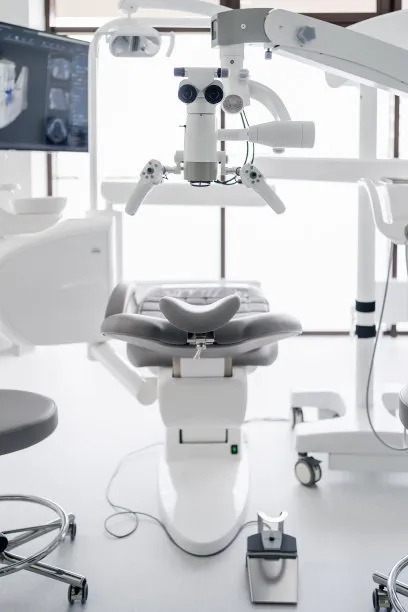Summary: Dental implants are becoming an increasingly popular solution for those seeking to replace missing teeth, offering both functionality and aesthetic benefits. However, before undergoing the dental implant procedure, several essential precautions must be taken to ensure optimal outcomes. This article delves into four critical aspects: understanding your oral health status, consulting with your dental professional, evaluating the procedures risks, and preparing for post-operative care. By addressing these considerations, patients can enhance their chances of a successful dental implant experience and improve their overall oral health.
1. Assessing Your Current Oral Health Condition

Before opting for dental implants, it is crucial to have a comprehensive understanding of your oral health. This includes addressing any existing dental issues such as gum disease, cavities, or infections, as these can impede the success of the implant procedure. Taking care of these conditions before the implant can significantly influence healing and integration of the implant.
A thorough dental examination, including X-rays, will help your dentist evaluate the density and quality of your jawbone, which is essential for supporting an implant. A lack of adequate bone structure may lead to complications, such as implant failure, necessitating bone grafting procedures beforehand.
Moreover, factors such as age, medical history, and lifestyle choices, such as smoking or severe health conditions like diabetes, can affect your candidacy for dental implants. Being open and honest about your oral health and lifestyle with your dentist is vital to ensure a tailored treatment plan.
2. Importance of Professional Consultation
Consultation with a qualified dental professional is a pivotal step in preparing for dental implants. Your dentist will provide a comprehensive assessment of your unique situation, informing you if you are a suitable candidate for the procedure. This consultation typically involves reviewing your medical history, previous dental work, and any ongoing concerns you may have.
Additionally, your dentist can explain the types of implants available and suggest the best options tailored to your needs. In-depth discussions about the procedure, expected outcomes, and any related costs will help demystify the process and provide you with peace of mind.
It’s also advisable to seek a second opinion if youre uncertain about the recommendations given. This could provide additional insights and help you make informed decisions about whether to proceed with the dental implant procedure.
3. Understanding Procedure Risks and Complications
Being aware of the risks and complications associated with dental implants is imperative for making an informed decision. Like any surgical procedure, dental implants present certain risks, including infection at the implant site, damage to nearby teeth or blood vessels, or unfavorable reactions to anesthesia.
Furthermore, there may be risks involved in the healing process, such as implant failure due to improper integration with the jawbone or insufficient bone density. Understanding these risks not only prepares you mentally and physically but also fosters discussions with your dentist about how to mitigate them effectively.
Knowing the signs of complications can also be beneficial. Post-surgery, you should monitor for excessive swelling, bleeding, or persistent pain, which could indicate potential issues. Having regular follow-up appointments with your dental provider is essential to ensure successful healing and to address any concerns promptly.
4. Preparing for Post-Operative Care
Preparing for proper post-operative care is key to ensuring the success of your dental implants. After the procedure, carefully following your dentists aftercare instructions is crucial. This may include recommendations for managing pain, maintaining oral hygiene, and dietary restrictions to promote healing.
Additionally, incorporating rest and avoiding strenuous activities for a few days post-surgery will allow your body to recover optimally. Its also important to stay adequately hydrated and follow a soft food diet during the initial healing phase to minimize discomfort and protect the surgical site.
Regular follow-up appointments are essential to monitor the healing process. During these visits, your dentist will check the implant site and address any concerns, ensuring that everything is progressing as expected. By being diligent in your aftercare, you enhance the chances of your dental implants thriving in the long run.
Summary:
In conclusion, understanding the essential precautions before undergoing dental implant procedures is vital for ensuring optimal oral health results. Assessing your current oral health, engaging in a professional consultation, being aware of procedure risks, and preparing for post-operative care are integral steps in this journey. By prioritizing these considerations, you will significantly increase the success rates of dental implants, ultimately leading to improved oral health and quality of life.
This article is compiled by Vickong Dental and the content is for reference only.
Vickong Dental
Vickong Dental is a large medical group established in Hong Kong in 2008 by professors from well-known medical universities in Guangdong and Hong Kong, as well as medical doctors from key national '985' universities (including Master's supervisors and senior professors). The chain of branches brings together expert dentists with PhDs and Master's degrees from Hong Kong and Mainland China, committed to providing high-quality dental treatment.
"Vickong Dental Practices the University Motto of 'Healing and Serving Society,' with a Stable Operation for Sixteen Years. It Has Been honored with Hong Kong Enterprise Leaders's Choice,' and is a Global Trusted Implant Center for the Nobel Implant System. Recommended by Hong Kong Metro Broadcast and Guangdong Television, it Serves Customers from Over Thirty Countries and Regions, Gaining the Trust and Favor of Citizens from the Guangdong-Hong Kong-Macau Greater Bay Area and Surrounding Cities.

Thousands of customers' unanimous praise
The most recognized and highly recommended dental service by customers in the Guangdong-Hong Kong-Macau Greater Bay Area
We Ensure You Receive Detailed Care and Attention Here
Hong Kong standards, Shenzhen prices, Your Trusted English-speaking dentists

Vickong Dental Medical-Grade Instrument Disinfection Process
Vickong Dental Medical-Grade Instrument Disinfection Process

Vickong Dental Chain: A Warm and Comfortable Environment for Treatment






Appointment Hours

Q&A
Why choose Vickong Dental?
Vickong Dental practices the university motto 「Medicine to Benefit Society」, with each branch bringing together highly qualified dentists with doctoral and master’s degrees from Hong Kong and the Mainland, and has maintained seventeen years of steady operation。Recipient of 「2024 Hong Kong Enterprise Leaders Brand」, 「2025 Hong Kong Enterprise Leaders Brand」, a Nobel Biocare Global Trusted Implant Center, and a brand recommended by Metro Radio Hong Kong and Guangdong TV。
To date, we have served customers from more than thirty countries and regions,earning exceptionally high word-of-mouth recognition and trusted recommendations from residents across the Guangdong-Hong Kong-Macao Greater Bay Area and surrounding cities
We have eight major branches in Zhuhai、Shenzhen,and a consultation and service assurance center in Hong Kong,so you can book a free consultation at any time for any questions,which is very reassuring.
If I do not accept the quotation after the CT scan, will I be charged??
No! As long as the actual treatment has not started, you will not be charged any fees.
Will there be any additional charges during the treatment process?
No, there won’t be any additional charges. Before treatment begins, we will clearly explain the treatment plan and its corresponding fees. Only after the patient agrees and signs the consent form will we proceed with the dental service.
Can I pay in Hong Kong dollars?
Yes. Vickong Dental accepts payment in Hong Kong dollars. The amount will be converted based on the exchange rate of the day, and the applicable rate will be clearly communicated to you in advance.
Can I reschedule my appointment at any time?
Yes. Please contact us via **WeChat** or **WhatsApp** as early as possible, providing your original appointment time and details, along with your preferred new date and time slot for rescheduling.













